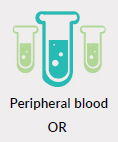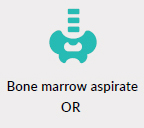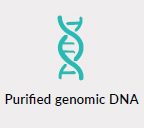
19 year-old Ahana (name changed) like any normal girl dreamt of a bright future until she was diagnosed with chronic myeloid leukaemia (CML) a year and half ago.
CML is one of the common types of cancer accounting for 30% to 60% of all adult Leukemia. It is caused by a gene defect known as Philadelphia chromosome where fragments of two chromosomes interchange places resulting in formation of an abnormal gene known as – BCR-ABL.
CML as a disease is one of the first cancer types, wherein the concept of targeted therapy in oncology space was introduced with invention of drug- Imatinib Mesylate (IM) in the late 90’s. However, there were a significant number of patients who developed intolerance to this drug during the course of treatment. In addition, there are others in whom the medicine isn’t as effective. This leads to their cancer growing inspite of taking Imatinib. Unfortunately, Ahana was one among them. Having been on Imatinib for a year with no progress Dr. Sachin Jadhav, Haematologist and Bone Marrow Transplant (BMT), Fortis Hospitals, Bangalore put her on Nilotinib. Yet, she showed no progress and developed severe anaemia and low platelet count.
One test is available to predict if the CML cancer cells will respond to usual medicines. This test named as “Molecular analysis of the cancer cells for Imatinib Resistance Mutation Analysis (IRMA)” was recommended to suggest further course of treatment. The blood sample was sent to MedGenome Labs, Bangalore. This revealed that Ahana harboured a mutation (T315I) which made her resistant to both Imatinib and Nilotinib. This analysis proved to be a significant lead for planning the further course of treatment.
Today the only treatment, when a patient’s cancer cells have T315I mutation, is with a medicine called Ponatinib. However, Ponatinib is not available in India. Hence alternative treatment with chemotherapy followed up by an allogeneic bone marrow transplant was planned. This will cure the disease in about 30-40% of patients.
Therefore, in CML, periodic genetic testing is very critical for complete evaluation of the patient as it contributes to diagnosis, response assessment and change in treatment of the patient.
Summary
- Genetic testing helped in identifying clinically relevant mutation that made her resistant to Imatinib and Nilotinib at a much early stage before the disease progressed
- The use of highly sensitive technology i.e NGS based testing of IRMA helped in early detection of T315l mutation
About MedGenome
MedGenome is a leading solution provider of clinical genomics offering genetic testing across various disease areas such as neurology, oncology, cardiology, rare inherited diseases, endocrinology, hematology, prenatal, population genomics etc.
MedGenome’s diagnostic tests include many breakthroughs for genetic diagnostics including liquid biopsy, non-invasive prenatal screening test (NIPT), carrier screening test, and whole exome sequencing for cost-effective identification of rare mutations at its CAP certified lab in Bangalore.
| Medgenome offers | Sample requirements | Required forms | TAT |
| Imatinib resistance (ABL kinase) gene analysis – IRMA |  | 10 working days | |
| BCR-ABL quantitative gene fusion analysis (International Scale) |  | Test requisition form along with relevant clinical information including pedigree. consanguinity. age of onset, clinical presentation and symptoms | |
 | 5 working days |

 Enquire
Now
Enquire
Now